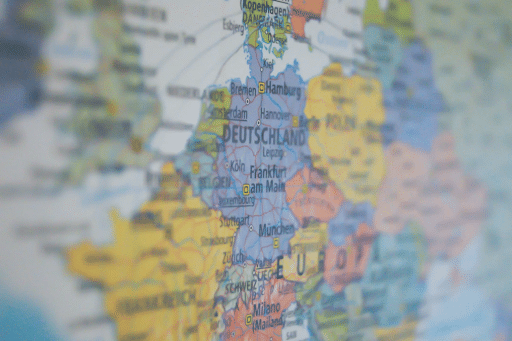Suppose you have chosen to expand your business to another country or to multiple countries, congratulations! This move can help your company achieve its full potential. However, your odds of success may vary depending on the country you have chosen.
The truth is that some countries are far more attractive than others for prospective business owners and entrepreneurs. This could be due to factors such as tax rates, licenses, setup costs, and the available talent pool in the country.
It is vital to research the various countries you could expand your business to before taking the plunge. After all, making a misstep here could jeopardise your company’s expansion success and Leave you worse off than before. To simplify this selection process, we have compiled the following list of the seven best countries to expand your business to.
Sweden
Many business owners and entrepreneurs choose to expand their companies to Sweden. This Scandinavian nation boasts a stable and robust economy and ranks 10th in Ease of Doing Business.
Sweden also has an open economy that promotes competition and innovation. The government frequently invests in the country’s growth. Such efforts are typically directed at the company’s food processing and biotechnology sectors.
Starting a business in Sweden requires a minimum capital investment of SEK 50,000 or approximately $5800. It is possible to start your company in this country in as little as 7 days. The steps are as follows:
- Obtain a written Swedish bank statement that certifies the total cash paid for shares deposited into an account.
- Send your application to the Swedish Companies Registration Office and wait to receive a registration certificate.
- Register your company with the Swedish Tax Agency.
- Register beneficial ownership information.
Denmark
If you would rather expand your business to a different Scandanavian nation, Denmark is a great choice. This country ranks 4th in Ease of Doing Business.
Denmark is renowned for its high standard of living and robust economy. This country also features a strong services sector that employs approximately 80% of its population.
Starting a business in Denmark requires a minimum capital investment of DKK 40,000 or approximately $6,200. You can start a business in this country in under five days if you follow procedures. The steps are as follows:
- Collect a NemID signature.
- Deposit your startup capital at a Danish bank.
- Register your company with the Danish Business Authority’s Webreg system.
- Contact the Danish Business Authority and register as an employer.
- Register your employees for workmen’s insurance.
Norway
Norway may be renowned for its breathtaking coastlines. However, it is also one of the leading countries to expand your business to. This nation comes in 9th on the Ease of Doing Business index.
Norway is a smart choice for businesses that prioritize socioeconomic and environmental sustainability in their operations. The workforce also possesses a high level of education and has a longstanding culture centred around innovation.
Starting a business in Norway requires a minimum capital investment of NOK 30,000 or approximately $3,500. It takes around 3 days to set up a company in this country.
The steps for doing so are as follows:
- Deposit your startup capital at a Norwegian bank such as DNB ASS.
- Submit your business application with the Register of Business Enterprises and complete your VAT registration.
- Set up an occupational pension plan for your employees.
- Enrol in workers’ injury insurance
Germany
Germany has arguably one of the strongest economies in Europe. This country ranks 22nd in Ease of Doing Business, which is relatively low for a European nation. However, it makes up for it with its stable economic and political climate.
Germany is especially attractive for business owners and entrepreneurs due to its strategic position within Europe. The country is bordered by nine countries, and is a popular location for industry-wide events. A significant portion of Germany’s 83.2 million population possesses post-secondary education. This provides businesses with access to a large pool of highly skilled workers.
Starting a business in Germany requires a minimum capital investment of EUR 12,500 or approximately $14,500. The setup process can be completed in 3 to 5 days on average.
The steps for doing so are as follows:
- Check your company’s name availability at the Berlin Chamber of Industry and Commerce web-page.
- Get Your Memorandum of Association and Articles of Association notarized.
- Deposit the minimum capital amount at a German bank.
- File your Articles of Association using the notary public.
- Register your company with the Commercial Register.
- Notify the Office of Business and Standards regarding your company’s establishment.
- Register your company with the Professional Association specific to your trade.
- Inform the Labor Office regarding your company’s establishment.
- Register your employees for social and health insurance.
- Register with the Tax Office and receive your VAT number.
Finland
Finland may be one of the lesser talked about Nordic countries. However, it may be the right choice for certain types of business expansions. This country ranks 20 on the Ease of Doing Business index.
Many businesses are drawn to Finland for its competitive operating costs, developed infrastructure, and skilled workforce. Many industries such as telecommunications, medical and pharmaceutical products, and industrial equipment are set to grow rapidly in this country in the near future.
Setting up a business in Finland requires a minimum capital investment of EUR 2,500
or approximately $2,900. It takes about 12 days to start a business in Finland.
The steps for doing so are as follows:
- Deposit your shares capital at a Finnish bank, pay a registration fee, and obtain a receipt.
- Submit a start-up notification form at the National Board of Patents and Registration.
- Complete registration with Tax Administration.
- Complete VAT registration.
- File for pension insurance, medical insurance, and accident insurance for employees at a private insurer.
France
France is a great place to consider expanding your business to. This European country ranks 37rd on the Ease of Doing Business index.
France is known for its stable economy and international trade networks. Paris is the epicentre of numerous financial activities and is a brilliant place to set up your operations. Businesses can benefit from operating in a major European country with close ties to many other nations.
Prospective business owners and entrepreneurs will be glad to learn that the minimum capital requirement to set up a business in France is only 1 Euro. It is possible to start a business in the country in only four days.
The steps for setting up a business in France are as follows:
- Check your business name for uniqueness at the Institut National de la Propriété Industrielle (INPI).
- Deposit your initial capital at the notary public, the Deposit and Consignment Office, and the bank.
- Publish your company incorporation notice.
- File company incorporation joint application.
- Purchase company books and get them initialled at the Commercial Court.
Italy
Italy is growing to become one of the most popular countries to expand your business to. This nation ranks 58th on the Ease of Doing Business index. Despite the European country’s small size, it still has the world’s ninth-largest economy.
Plenty of prospective business owners and entrepreneurs are drawn to Italy’s highly-developed economy, which primarily consists of services and manufacturing industries. Prospective business owners will need to pay a minimum capital investment of only 1 Euro when setting up a business in the country. It is possible to set up a company in Italy in eleven days.
The setup process is as follows:
- Execute your public incorporation deed and company bylaws and pay registration tax.
- Purchase your accounting and corporate books.
- Pay the required government tax to authenticate accounting and corporate books.
- Activate and register with the P.E.C.
- Register your company incorporation and receive your tax identification number, VAT number, and register under the Social Security Administration.
- Obtain an accreditation that includes employee information.
- Declare your employment of workers with the Labor Office.
Why Choose openAeuropeancompany.com
As you can see, there are plenty of great countries to expand your business to. Each of the countries mentioned in the list above has distinct economies, each of which offers different advantages for prospective business owners and entrepreneurs.
You should note that European company formation can be a complicated task. We briefly discussed the registration process for each country earlier. However, this process can be more complex if you aren’t familiar with the local business laws in the country you are expanding to.
Business owners and entrepreneurs that would like to set up operations in any of the aforementioned countries should seek assistance from professionals.
At openAeuropeancompany.com, we offer services for companies that wish to expand their operations to new countries. Our experts understand the local business laws and regulations for different countries and can assist you with the setup and operation processes. Please contact us to learn more about our services and to get started with the company expansion process.




